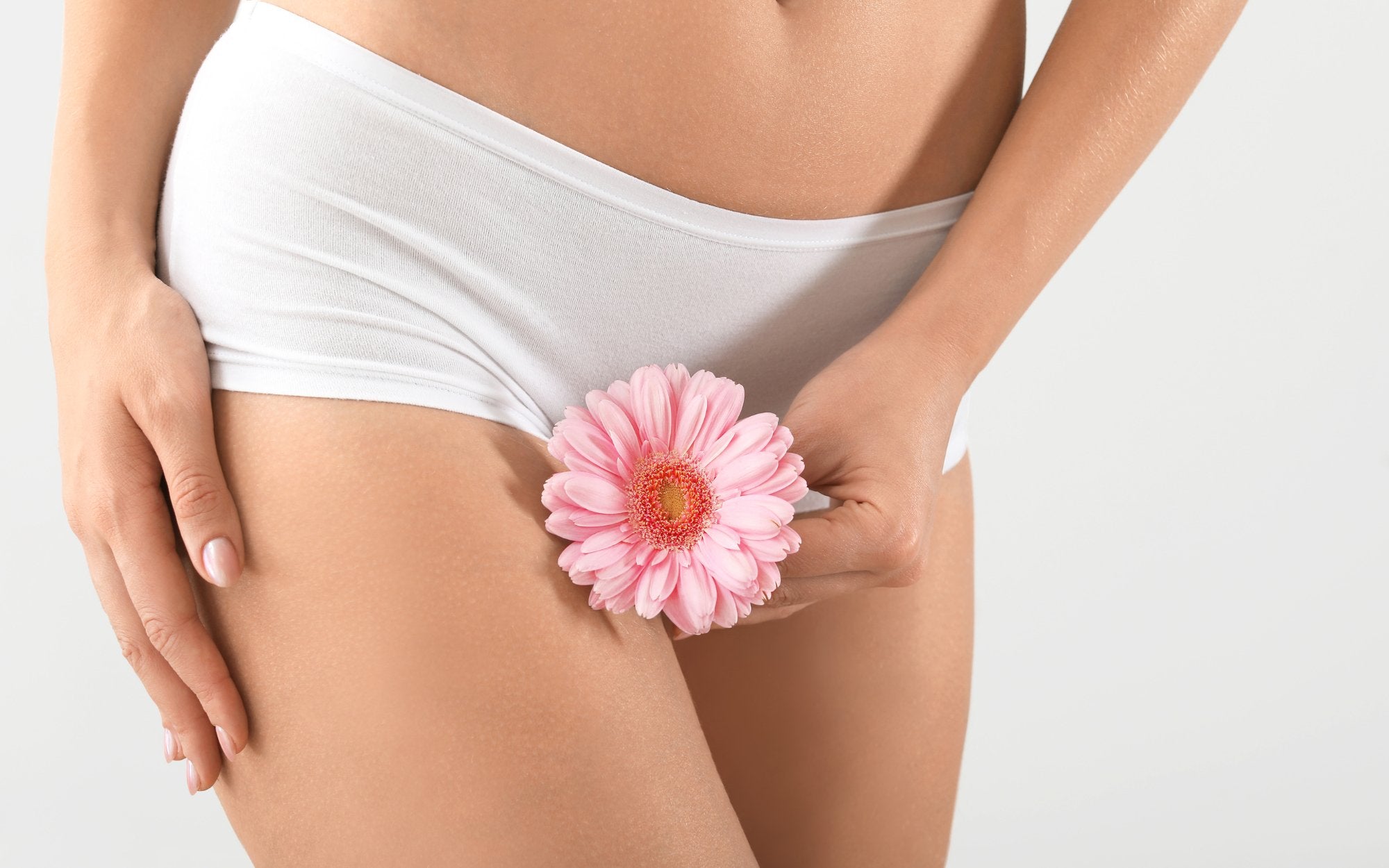Vaginas and UTIs: Understanding the Vaginal Microbiome and its Impact on Your Urinary Health

Vaginas can be tough to talk about. 45% of women say they never talk to anyone about their vaginal health. And 65% of women struggle to even say the word vagina.
Well, we’re about to say it. A lot. Because vaginal health is a crucial element of what makes women women. And the vaginal microbiome in particular is the key to a thriving vagina and urinary tract. Let’s get into it.
What is the vaginal microbiome?
It’s an entire ecosystem inside your vagina—home to hundreds of microorganisms. There are over 500 types of bacteria in the vaginal flora alone, some good and some bad, all living in harmony.
Lactobacillus is one of the star players. This bacteria is famous for its ability to create an acidic environment that defends against harmful pathogens.
What is the role of the vaginal microbiome?
The vaginal microbiome is like your internal bodyguard. It protects your vagina from invaders that could cause infection or disease. It also stops the growth of harmful bacteria and yeast, protecting you from conditions like bacterial vaginosis (BV), yeast infections, and urinary tract infections (UTIs).
Lactobacillus is an important part of the defense system because it produces lactic acid, which lowers the vaginal pH. Good bacteria, like Lactobacillus itself, thrives in a low pH environment.
To summarize: A more acidic pH = a healthier microbiome = a healthier you.
What happens if your vaginal health is compromised?
The balance of bacteria inside the vaginal microbiome is delicate. Countless factors can interfere with it, destroying good bacteria and throwing the whole system off course.
If healthy bacteria levels drop, the vaginal pH rises, creating the perfect environment for bad bacteria to grow and multiply. The result? Vaginal infections, UTIs, and other uncomfortable and potentially serious conditions.
How does the vaginal microbiome impact urinary health?
You might think your vagina and your urinary tract are distant cousins. But clinical studies show they’re more like sisters and that the vaginal microbiome is a key contributor to urinary health.
The two systems share a lot of the same bacteria, including everyone’s fav—Lactobacillus. They also directly impact each other when it comes to UTI risks. Urine samples that detect a UTI also tend to detect several vaginal bacteria.
The vagina can act like a reservoir for E.coli—the bacteria responsible for 90% of all UTIs—to grow and spread to the urinary tract. Plus, new research shows a vaginal bacteria called Gardnerella vaginalis can trigger E.coli already hiding in the bladder, causing more UTIs and even kidney infections.
It’s no wonder people with vaginas are 8 times more likely to get a UTI than people without vaginas.
On the other hand, women with higher levels of Lactobacillus in their vaginas are less likely to suffer from recurrent UTIs. So the healthier your vaginal microbiome is, the healthier your urinary tract will be—and vice versa.
Top tips for maintaining a healthy vagina.
It’s clear—vaginal health is worth paying attention to. Follow these simple health hacks to keep your vaginal microbiome balanced and be urinary tract infection-free.
- Take a daily probiotic supplement. A probiotic for vaginal health can balance the microbiome in your vagina and gut.
- Avoid soap and douching. Your vagina naturally cleans itself, so introducing external cleansers can disrupt the natural balance of the vaginal microbiome.
- Pee after sex. This flushes out any new bacteria that has just been introduced to your urethra or vagina.
- Wear breathable underwear. Tight-fitting, non-breathable fabrics can promote bacteria growth around your vagina and urethra.
- Take a Urinary tract health supplement. Cranberry PACs are clinically studied to help stock bacteria from sticking to the urinary wall.
- Wipe front to back. Otherwise E.coli can easily travel from the intestines to the vagina and urethra.
- Be careful with shaving. Pubic hair protects the vulva from bacteria, while razor burn can cause infection and irritation.
The best supplements for vaginal health.
Utiva Probiotics: Maintaining microbiome balance is key for a healthy vagina, gut, and urinary tract. Choose a probiotic that has at least 10 billion CFUs, a mixture of various Lactobacillus strains and Bifidobacterium, and an acid-resistant design. Utiva Probiotic has all of the above—making it one of the best probiotics for urinary tract health.
Utiva Cranberry PACs: PACs—also known as proanthocyanidins—are all-natural nutrients found in cranberries. They’re clinically studied to help stop bacteria from irritating the urinary tract. In fact, 96% of Utiva customers experience a healthy urinary tract.
Utiva Cranberry PACs has also been recognized by the Society of Obstetricians and Gynaecologists of Canada (SOGC). That means it has been carefully reviewed by a panel of medical professionals to confirm it’s a safe and effective supplement—all based on scientific evidence.
Utiva D-mannose: D-mannose is a sugar found in some fruits, vegetables, and human cells. It’s proven to stop E.coli from attaching to the vaginal and urinary lining, making Utiva D-mannose a great addition to your your urinary tract health.
See how easy it was to say “vagina”?
Now let’s keep the conversation alive. Our Utiva Community Support Group is a safe space to talk about all things women’s health—from vaginas to pee problems to menopause.
If you’re looking to continue your education on vaginal and urinary health, our blog is the perfect place to dive in. And when in doubt, reach out to our dedicated support team with any questions or concerns.
References
https://www.ncbi.nlm.nih.gov/pmc/articles/PMC7186798/
https://www.ncbi.nlm.nih.gov/pmc/articles/PMC5746606/
https://www.mdpi.com/2076-2607/11/2/298
https://www.myuti.com/uti-education-center/the-active-link-between-vaginal-and-urinary-health
https://blog.flexfits.com/the-link-between-vaginal-ph-balance-and-utis/
https://www.ncbi.nlm.nih.gov/pmc/articles/PMC8058480/
https://www.ncbi.nlm.nih.gov/pmc/articles/PMC3749018/
Knowledge is power
Sign up to our newsletter to keep learning!

- Choosing a selection results in a full page refresh.
- Opens in a new window.







